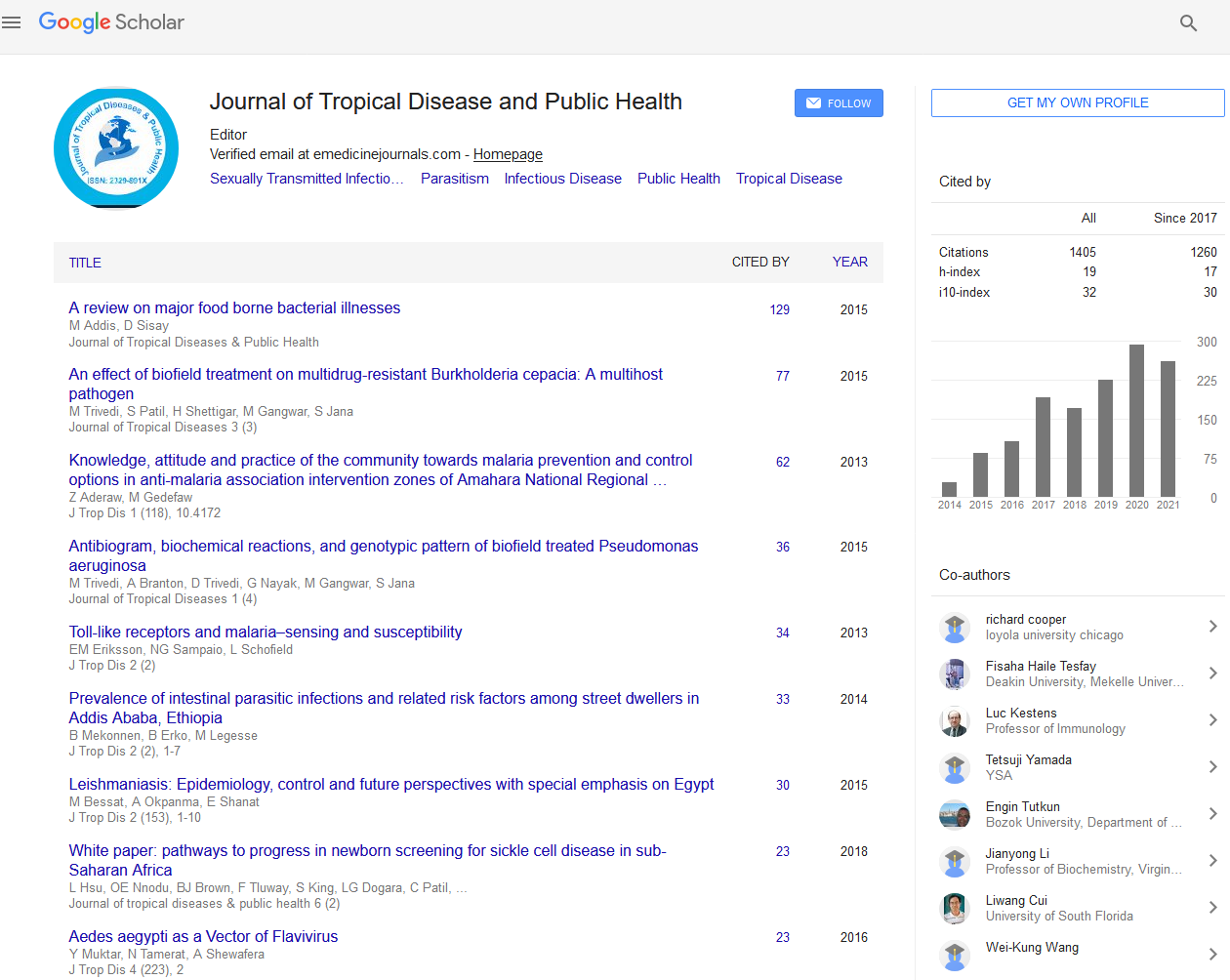Indexed In
- Open J Gate
- Academic Keys
- ResearchBible
- China National Knowledge Infrastructure (CNKI)
- Centre for Agriculture and Biosciences International (CABI)
- RefSeek
- Hamdard University
- EBSCO A-Z
- OCLC- WorldCat
- CABI full text
- Publons
- Geneva Foundation for Medical Education and Research
- Google Scholar
Useful Links
Share This Page
Journal Flyer

Open Access Journals
- Agri and Aquaculture
- Biochemistry
- Bioinformatics & Systems Biology
- Business & Management
- Chemistry
- Clinical Sciences
- Engineering
- Food & Nutrition
- General Science
- Genetics & Molecular Biology
- Immunology & Microbiology
- Medical Sciences
- Neuroscience & Psychology
- Nursing & Health Care
- Pharmaceutical Sciences
Abstract
Serum Procalcitonin: as a Triage Tool for Severe Plasmodium falciparum Malaria
Manoj Kumar Mohapatra, Ancil George Thomas, Prafulla Kumar Bariha and Dilip Kumar Patel
Objective: Patients of severe falciparum malaria may present with multi organ failure requiring critical care management. Procalcitonin (PCT) can be used as a triage tool to discriminate such patients.
Methods: We determined serum PCT semi-quantitatively by immunochromatographic test in 41 patients of severe and in 19 cases of uncomplicated falciparum malaria. The diagnosis of malaria was made with detection of the parasite from peripheral blood smear. All patients were subjected to detail clinical, biochemical, and haematological work up. The diagnosis of severe malaria was done according to WHO criteria and the severity of organ dysfunction was assessed with Malaria Severity Score (MSS) in all patients by taking different physiological parameters into consideration. The risk stratification of severe malaria was determined with MSS and it is compared with PCT level.
Results: Out of 41 patients of severe falciparum malaria 39 (95.1%) patients had multiple complications and 2 (4.9%) had single complication. The mean MSS was 8.39 ± 4.35. According to MSS, patients were categorized in to low, intermediate, and high risk group in 4 (9.7%), 9 (21.9%), and 28 (68.3%) patients respectively. Estimation of PCT showed that 13 (31.7%) patients of severe malaria had PCT value within 2-10 ng/ml (moderately raised) and 28 (68.3%) patients had ≥ 10.0 ng/ml (highly raised). High risk patients according to MSS were categorized as critical malaria. PCT could able to diagnose such cases with excellent sensitivity and specificity.
Conclusion: S. PCT ≥ 10.0 could able to define critical malaria and can be conveniently used as a triage tool for management of severe falciparum malaria. Instead of MSS, PCT enhanced triage will save time and decrease the overall costs while achieving similar result.


